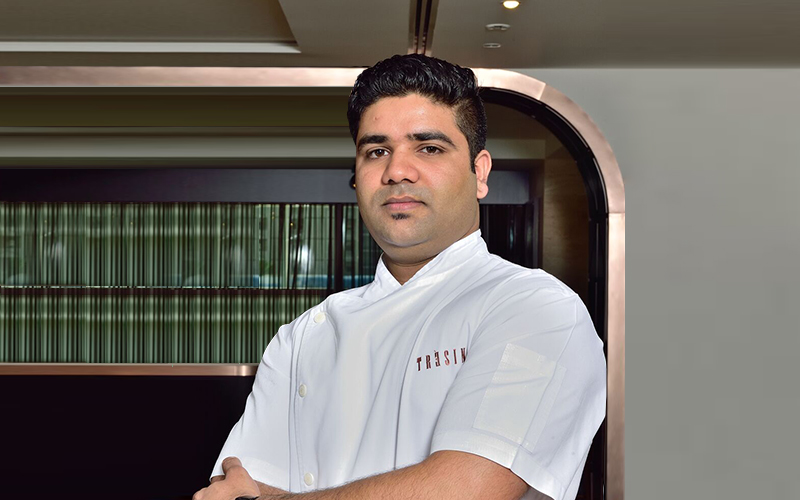Tresind’s chef Mohammed Zeeshan gives advice to BBC Good Food Middle East readers on creating their own theatrical meals at home and why he feels Indian cuisine is misunderstood. A lot of Tresind’s dishes are quiet theatrical gastronomy. What is your advice to home cooks wanting to recreate your style of cooking? Are there any … Continue reading "Mohammed Zeeshan: How to try molecular gastronomy at home"

Tresind’s chef Mohammed Zeeshan gives advice to BBC Good Food Middle East readers on creating their own theatrical meals at home and why he feels Indian cuisine is misunderstood.
A lot of Tresind’s dishes are quiet theatrical gastronomy. What is your advice to home cooks wanting to recreate your style of cooking? Are there any simple cooking tips to wow their guests that you could share?
Mohammed Zeeshan: How home cooks can try molecular gastronomy at home Tresind’s chef Mohammed Zeeshan gives advice to BBC Good Food Middle East readers on creating their own theatrical meals at home and why he feels Indian cuisine is misunderstood. A lot of Tresind’s dishes are quiet theatrical gastronomy. What is your advice to home cooks wanting to recreate your style of cooking? Are there any simple cooking tips to wow their guests that you could share?
My advice to BBC Good Food Middle East readers would be that they should try to understand food chemistry first – how different ingredients work together in one dish. For example adding lemon (an acid) while boiling eggs tend to make it brighter which is a simple bleaching effect.
My all-time favourite tip to impress guests is to prepare a strong pot of lemon tea and freeze it so that it forms ice cubes Then I serve these lemon ice-cubes in a cups with hot water the combination of the two will yield quiet a theatrical display and create instant cold lemon tea.
Why do you think Indian food has become such a universally popular cuisine?
The history of Indian culinary journey is centuries old but driven by the past 100 years of globalization it has become very popular around the world. As a nation, Indians have travelled and settled in different parts of the world carrying along their amazingly diversified food recipes, their unique dishes and their individual food habits.
Some people feel Indian cuisine is misunderstood-what is your opinion on this?
The perception of Indian food is that it is spicy and heavy. Well, yes there are a few dishes like that but as a cuisine it has a vast array of different characteristics. India is very diverse in its culture its food. There are so many flavours and ingredients to play with – every state has a different cuisine and every cuisine has a vast array of dishes. I would say that over time people will start to realize that, and explore and enjoy the huge variety of Indian cuisine.
Which talent would you most like to have that you don’t possess?
I would like to enhance my skills for Thai vegetable and fruit carving – it is a unique ancient art of carving different fruits and vegetables known as Kae Sa Luk which adds beauty and value to every dish.
What foods are you craving the most right now?
I always crave for homemade food like biryani and Haleema prepared by my mum.
On a personal level, what qualities that you possess have contributed to your success?
I think the two qualities that keep me strong are determination even in the face of failure, and diligence.
Is there one food that you’re secretly obsessed with having at home?
Yes, it is pure ghee (clarified butter).
In your opinion what do many home cooks get wrong when cooking Indian cuisine?
Home cooks tend to hasten the process and use a pressure cooker, high flame burner to cook the dishes that require affection and gentle cooking, which is at the core of Indian culture.
